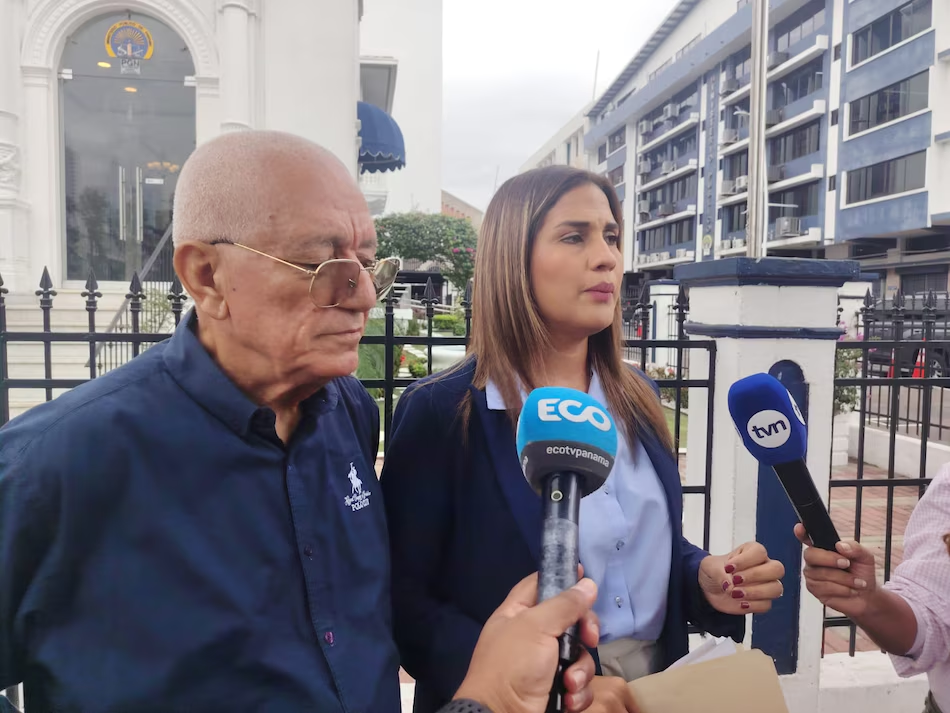Panama pummeled by twin scandals

THE LONG REACH of Brazil’s Operation Lavo Lato (Car Wash) bribery scandal and its effects on Panama are becoming daily more apparent as “Panama Papers” becomes the media flavor of the month.
The country hasn’t see so many foreign reporters since a “dead canoeist” arrived to buy a condo, and the Mossack Fonseca offices have become a new tourist icon, with images published around the world, something not welcomed in the secretive offshore shadows and damaging to the country’s image as already shown by the French government reaction.
The first dirty water sprinkles came with the arrest of Marcelo Odebrecht then president of the Norberto Odebrecht construction giant which was the recipient of $9 billion dollars of contracts from successive Panama governments. The arrest led to an urgent request from Brazilian prosecutors for help in tracing millions of dollars of bribes said to be channeled through Panama financial institutions en route to Switzerland and the bank accounts of Brazilian corruptees, but Panama’s justice system is not swift.

The next shower came with the sentencing of Odebrecht to nearly 20 years in jail and payment of $35 million, and for reasons likely linked to the possibility of further sentencing, his announced desire to cooperate with investigators.
Soon after, the hoses were fully turned on with a raid on the Brazilian offices of Mossack Fonseca, a law firm largely unknown to most of Panama’s citizens, because, it preferred a shadowy profile, like others of its ilk who specialized in creating offshore shell companies for the rich and sometimes infamous to hide their wealth, however obtained.
The firm’s co-founder Ramon Fonseca Mora, was quick to proclaim that the Brazilian operation was only a franchise although soon after, while files were being wiped clean and staff detained its manager, facing an arrest warrant, appeared in Panama.
Meanwhile for over a year, investigative journalists had been focusing on the activities of the company with 44 offices worldwide, while, Brazilian prosecutors were unraveling the kickbacks to executives of the Brazilian State Oil (Petrobras), in which Odebrecht and other construction companies in the country were involved,.
Authorities estimate that the diverted state money came to billions of dollars.
The light of the largest construction company in Latin America i has been waning,during biggest operation against corruption undertaken by any judicial authority in the country: Operation Lava Jato.
Operation Lava Jato is still shaking the floor of businessmen and politicians including former President Luiz Inacio Lula da Silva, whom co-party member and Brazilian President Dilma Rousseff, tried to protect by appointing him a minister in her government. She is facing impeachment challenges
The scandal in Brazil appears to be part of the landscape when it comes to Odebrecht. Panama was no exception. In 2007, the Ministry of Public Works invited tenders for the first phase of the Cinta Costera , with a reference price of $137 million. The work was awarded to Odebrecht for $189.1 million -in consortium with local company Constructora Urbana, S.A.-
Since then, and using a bidding model that gives a relatively low score to Odebrecht’s proposals the company has been awarded projects worth more than the cost of expanding the Canal.
The unprecedented success began in the administration of Martin Torrijos (2004-2009); flourished with Ricardo Martinelli (2009-2014), and has continued under Juan Carlos Varela, in spite of international scandal caused by the jailing of its former president.
La Prensa reported two months ago, that Brazilian prosecutors Carlos Fernando Dos Santos Lima revealed in a Phase 23 Lavo Lato press conference “evidence” that Mossack Fonseca was a “big money machine”.
Simultaneously, several employees of the representation of Mossack Fonseca in Brazil were arrested. One for whom there is an arrest warrant, is lawyer Maria Mercedes Riano, who, says La Prensa would now be in Panama.
Throughout the Operation Lava Jato, Brazilian prosecutors have stumbled again and again on companies created by the Panamanian firm, used in criminal acts related to money laundering schemes in different countries.
For example, Petrobras executives Odebrecht received kickbacks through offshore companies formed by Mossack Fonseca, revealed in phase 14 Operation Lava Jato. the same one that put Marcelo Odebrecht in prison.
Prosecutors identifiedcompanies such as offshore Milzart Overseas Holdings Inc., which received funds from another Panamanian society: South Constructora South Internacional, SA, dissolved by the Panamanian firm Patton, Moreno Ashvat which was its resident agent says La Prensa
At least $47 million appeared 47 In Constructora South bank accounts from companies belonging to Odebrecht, which was then moved to Swiss bank accounts to benefit Petrobras executives.
According to the Swiss authorities, Milzart Overseas Holdings Inc. had accounts controlled by the former director of Petrobras Renato Duque. The company first handled the Swiss firm Python & Peter; then he went to International Corporate Structuring, Luxembourg; and finally, by the German Panamanian, Cordero, Galindo & Lee.
Offshore accounts created by Mossack Fonseca and controlled by former Petrobas manager Pedro Barusco were: Backspin Management, S.A., Daydream Properties Ltd., Real Estate Tropez, S.A. Tec Inc.
Operators pf laundering schemes like Mario and Roberto Goes Trombeta- also resorted to Mossack Fonseca companies to build their criminal structures.
The first used, at least one Mossack Fonseca company, The second used eight, one, Kingsfield Consulting Corp.was “used as a channel to receive securities or other work done in Chile and Spain, involving subsidiaries of [Construction] OAS in Peru and Ecuador” Trombeta said, when he decided to cooperate with Brazilian justice.
So when the prosecutor Carlos Fernando Dos Santos Lima accused Mossack Fonseca in January he already had ample information on the activities of the firm. And it coincides with the trial judge, Sergio Moro: There is “evidence that Mossack Fonseca has provided the services necessary for opening offshore companies for at least four officers involved in the scheme to launder money” … ” there is evidence that Mossack Fonseca, including its representation in Brazil, has been helping criminal agents, including thePetrobras criminal scheme to practice fraud and money laundering. By offering offshore companies for criminals, the firm Mossack Fonseca & Co. would be participating, through its assistance, in the commission of these crimes. “





